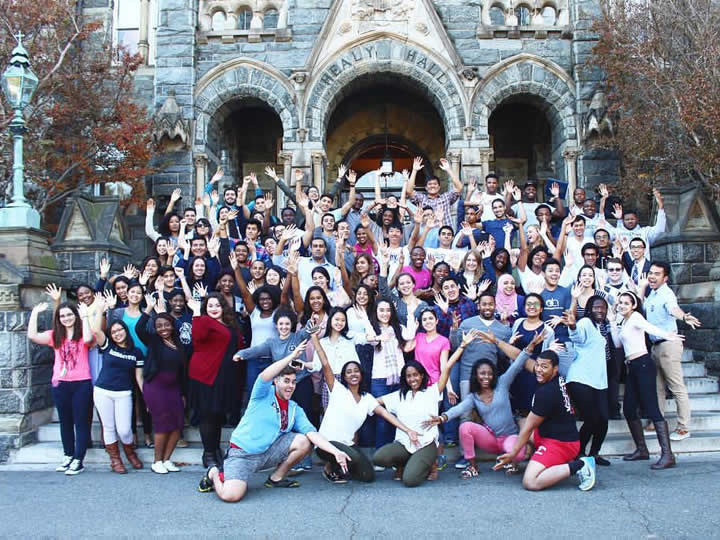Students, Faculty Petition to End GU Legacy Admissions
By • September 11, 2023 0 1160

Choosing a freshman class at one of Washington, D.C.’s elite colleges just got a whole lot harder this summer.
In June, as expected, the U.S. Supreme Court declared it unconstitutional to choose students based on their race or ethnic group identity as had been done for over four decades under the so-called “affirmative action” programs. Race preference selection was deemed to be unconstitutional. Almost immediately, the focus of admissions justice activists turned to challenging highly selective colleges’ practice of giving the children of their school’s alumni and/or large donors (as well as staff, faculty and other targeted identity groups) expedited admission.
Georgetown University is one of the targets. According to data from the university, the demographics for undergraduates in 2022-23 show that 7,500-plus students were enrolled at the historic main campus at 37th & O Streets NW in Georgetown, with the student body being 45.4 percent White, 10.6 percent Asian, 8.49 percent Hispanic or Latino, 7 percent Black or African American, 3.91 percent “Two or More Races,” 0.115 percent American Indian or Alaska Native, and 0.11 percent Native Hawaiian. About 18 percent are non-U.S. citizens. According to College Factual rankings, Georgetown ranks 238th in terms of ethnic diversity.
“That’s not good enough. It favors White and therefore is racist,” according to student justice activist organizations such as Employee Resource Networks (ERN).
“We are challenging state and college leaders to eliminate structurally racist and systemically inequitable admission policies, such as legacy preference and binding early decision, which make college admissions less fair and erode public trust in higher education,” said Jessica Giles, executive director of Democrats for Education Reform DC, in a Aug. 19 interview in Georgetown.
A petition has been circulating on campus and among students and faculty to “demand the abolition of legacy admissions at Georgetown.” It was said over the summer that more than 500 students and faculty at Georgetown University had signed the petition (the actual number was reported by the student newspaper, The Hoya, in September to be about 300). ERN demanded that the D.C. Council end legacy admission at George Washington, American, Georgetown, Howard and Catholic universities – although it was not stated from where the city council gets the authority and jurisdiction to do so.
In fact, educational journalists for publications as disparate as Time Magazine and National Review predict that ending legacy admissions is one issue on which both Democrats and Republicans can agree.
“Polls have found a good majority of Americans believe the practice is unfair, especially when not only alumni’s kids are given privileged access to admissions, but also children of faculty, donors and some say some athletes as well. Recently, investigators found that at Harvard, between 2014-19, some 43 percent of white students fell into one or more of four legacy categories (student, donor, faculty, staff). Nearly three-quarters of them would have been rejected for admission if subjected to the same standards as other white applicants,” wrote Wall Street Journal columnist Bill Galson recently.
Georgetown University reported that some 9 percent of recently admitted students were admitted on legacy preferences 2023. Some will not be waived. University administrators made clear that Georgetown is committed to granting legacy admission preference status to descendants of the GU272, the enslaved persons Maryland Jesuits sold in 1838 to fund the university. The student-faculty petition does not call for the elimination of this provision.
There is some irony in the debate over legacy admissions, however. It can be said that just as some under-represented racial and ethnic student groups had a chance to “hoard” their admissions to select colleges for their own families, the practice of legacy admissions will probably end for all of them.

